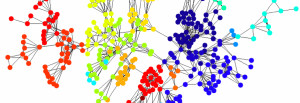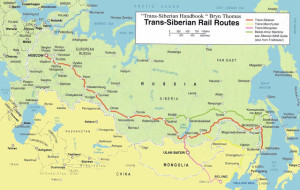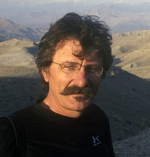
More to Search than Relevancy, Accuracy, Precision and Recall?
Search Vendor Management: Frazzled and Scared
![]() I loathe Wikipedia. I fought for months through their arcane rules to have a mass of misinformation about myself and my work deleted. And many of my friends and colleagues tell similar stories. Nothing that has anything to do consciousness research can trusted to be accurate on Wikipedia. In fact there is a group called Guerrilla Skeptics that makes a point of distorting anything having to do with consciousness or parapsychological research. I can on! ly assume that there are many other areas where there may be controversy that are similarly rigged. NEVER, EVER use Wikipedia if accuracy matters.
I loathe Wikipedia. I fought for months through their arcane rules to have a mass of misinformation about myself and my work deleted. And many of my friends and colleagues tell similar stories. Nothing that has anything to do consciousness research can trusted to be accurate on Wikipedia. In fact there is a group called Guerrilla Skeptics that makes a point of distorting anything having to do with consciousness or parapsychological research. I can on! ly assume that there are many other areas where there may be controversy that are similarly rigged. NEVER, EVER use Wikipedia if accuracy matters.

The Decline of Wikipedia
TOM SIMONITE – MIT Technology Review
The sixth most widely used website in the world is not run anything like the others in the top 10. It is not operated by a sophisticated corporation but by a leaderless collection of volunteers who generally work under pseudonyms and habitually bicker with each other. It rarely tries new things in the hope of luring visitors; in fact, it has changed little in a decade. And yet every month 10 billion pages are viewed on the English version of Wikipedia alone. When a major news event takes place, such as the Boston Marathon bombings, complex, widely sourced entries spring up within hours and evolve by the minute. Because there is no other free information source like it, many online services rely on Wikipedia. Look something up on Google or ask Siri a question on your iPhone, and you’ll often get back tidbits of information pulled from the encyclopedia and delivered as straight-up fact! s.
Yet Wikipedia and its stated ambition to ‘compile the sum of all human knowledge” are in trouble. The volunteer workforce that built the project’s flagship, the English-language Wikipedia-and must defend it against vandalism, hoaxes, and manipulation-has shrunk by more than a third since 2007 and is still shrinking. Those participants left seem incapable of fixing the flaws that keep Wikipedia from becoming a high-quality encyclopedia by any standard, including the project’s own. Among the significant problems that aren’t getting resolved is the site’s skewed coverage: its entries on Pokemon and female porn stars are comprehensive, but its pages on female novelists or places in sub-Saharan Africa are sketchy. Authoritative entries remain elusive. Of the 1,000 articles that the project’s own volunteers have tagged as forming the core of a good encyclopedia, most don’t earn even Wikipedia’s own middle-ranking quality scores.
The main source of those problems is not mysterious. The loose collective running the site today, estimated to be 90 percent male, operates a crushing bureaucracy with an often abrasive atmosphere that deters newcomers who might increase participation in Wikipedia and broaden its coverage.

Commons-based peer production (CBPP) is a new and increasingly significant model of social innovation based on collaborative production by citizens through the Internet.
Commons-based peer production (CBPP) is a new and increasingly significant model of social innovation based on collaborative production by citizens through the Internet.
This project will foster the CBPP phenomenon by providing a techno-social software platform specifically designed to facilitate the creation of resilient and sustainable CBPP communities.
The design of the P2Pvalue platform will be empirically and experimentally grounded. Through a triangulation of qualitative and quantitative methods, we will elaborate guidelines for the institutional and technical features that favour value creation in CBPP.

The project focuses on three key areas of improvement over current platforms:
 Putin Trying to Build & Secure Rail Link through DPRK(aka, “North Korea”) for Moving Goods between Asia and Europe
Putin Trying to Build & Secure Rail Link through DPRK(aka, “North Korea”) for Moving Goods between Asia and Europe
Putin is inching closer to his goal of turning Russia into a major transit route for trade between eastern Asia and Europe by prying open North Korea, a nuclear-capable dictatorship isolated for half a century.

Russia last month completed the first land link that North Korea’s Stalinist regime has allowed to the outside world since 2003. Running between Khasan in Russia’s southeastern corner and North Korea’s rebuilt port of Rajin, the 54-kilometer rail link is part of a project President Putin is pushing that would reunite the railway systems of the two Koreas and tie them to the Trans-Siberian Railway.
That would give Putin partial control over links to European train networks 8,000 kilometers (5,000 miles) away. The route is as much as three times faster than shipping via Egypt’s Suez Canal, which handles 17,000 ships a year, accounts for about 8 percent of maritime trade — and is increasingly beset by pirates and political instability in Egypt and Syria.
Shipments to and from western Europe and Rajin will be delivered in just 14 days, compared with 45 days by ship.
Getting the two Koreas to work together on the railway and a long-stalled plan to build a pipeline to supply both Koreas with Russian natural gas is fraught with financial and political hurdles, said Fyodor Lukyanov, head of the Council on Foreign and Defense Policy research group in Moscow. They stem from North Korea’s nuclear weapons program and lingering animosity from the 1950-1953 Korean War.
“Russia’s position is to get North Korea involved in profitable projects to make them realize that cooperation is better than isolation,” Lukyanov said by phone from the Russian capital.
“The rail route is faster but more expensive, so it will probably become a niche product,” Tasto said by phone Oct. 7. “Cargo trains are not mass-transportation vehicles like container ships.”

As some of you know, I like to find people who don't want to be found. Since the mid 90's I have located and connected with over two dozen terrorist, criminal, jihadi and drug groups. The alphabet list of people I have tracked down and lived with include the taliban, FARC, LURD, al Qaeda, BRA, GIA, MILF, ABB, AUC, HEK, Haqqani, Shining Path, ADF, Chechens along with various mafyia, gang and drug groups. My resume includes correctly identifying the location of bin Laden and Zawahiri in 2003. I have spent significant time tracking the exact location and condition of hundreds of kidnap victims in Somalia, Pakistan, Iraq, Afghanistan and Colombia. I don't come to this task lightly
I am trying a new concept. Crowd-funding and crowd-sourcing a real search for a dangerous group. Your dollars supports an expedition led by myself along with professionals on the ground. Our task is to locate Joseph Kony along with understanding and communicating why Kony has not been found. Then we also need to communicate our efforts, discoveries and lessons learned in an open transparent way. Only then can criminals realize that there is no place left on earth to hide.
Phi Beta Iota: Crowd-funding is raising money from an infinite diversity of sources. Crowd-sourcing is aggregating information from an infinite variety of sources. They are different. They go well together. This is an example of public intelligence in the public interest funded by the public, of, by, and with the public.
We will go deeply into how $200 million spent by charities and U.S. tax dollars have not resulted in the locating or capture of Kony . Our goal is not to critique but to enlighten our followers so that we can apply this model to other expeditions.

Why Anonymity is Important for Truth and Trustworthiness Online
Philosophy Professor, Karen Frost-Arnold, has just published a highly lucid analysis of the dangers that come with Internet accountability (PDF). While the anonymity provided by social media can facilitate the spread of lies, Karen rightly argues that preventing anonymity can undermine online communities by stifling communication and spreading ignorance, thus leading to a larger volume of untrustworthy information. Her insights are instructive for those interested in information forensics and digital humanitarian action.

To make her case, Karen distinguishes between error-avoidance and truth-attainment. The former seeks to avoid false beliefs while the latter seeks to attain true belief. Take mainstream and social media, for example. Some argue that the “value of traditional media surpasses that of the blogosphere […] because the traditional media are superior at filtering out false claims” since professional journalists “reduce the number of errors that might otherwise be reported and believed.” Others counter this assertion: “People who confine themselves to a filtered medium may well avoid believing falsehoods (if the filters are working well), but inevitably they will also miss out on valuable knowledge,” including many true beliefs.
Continue reading “Patrick Meier: Why Anonymity is Important for Truth and Trustworthiness Online”

I will be giving my last public talk in 2013 at the upcoming Search Summit. I am revealing some data about the trajectory of commercial search versus free and open source search. My focus is not just on costs. I will address the elephant in the room that few of the sleek search poobahs elect to ignore—management.
As part of my preparation, I read an interesting public relations and positioning white paper from Oracle. The essay is “The Department of Defense (DoD) and Open Source Software.” You should be able to locate a copy at the Oracle Middleware Web page. But maybe not. Well, take that up with Oracle, Google, and whoever indexes public Web pages.
The argument in the white paper is that open source is useful within the context of commercial software. The premise is that a commercial company develops robust products like Oracle’s database and then rigorously engineers that product to meet the tough standards imposed by the US government. Then, canny engineers will integrate some open source software into that commercial solution. The client—in this case the Microsoft loving Department of Defense—will be able to get the support it needs to handle the demands of global war fighting.
There are three fascinating rhetorical flourishes in the white paper. These are directly germane to the direction some of the discussions of commercial and proprietary versus free and open source software have been moving. I will give a couple of case examples in my talk in early November 2013, and I assume that the slide deck for my talk will find its way into one or more indexing services. I won’t plow that ground again. Below are some new thoughts.
Continue reading “Stephen E. Arnold: Open Source at Oracle and with SharePoint”